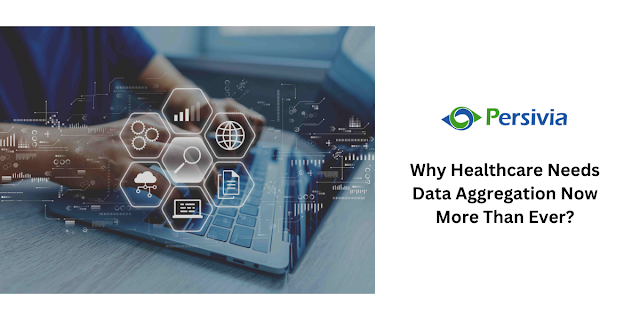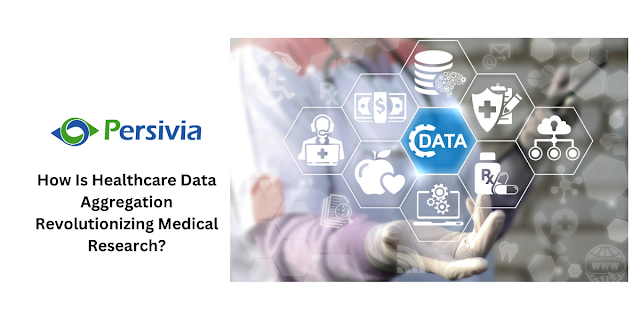Why Healthcare Needs Data Aggregation Now More Than Ever?
The importance of Data Aggregation cannot be overstated enough in this technically advanced healthcare landscape.
Healthcare payers and providers are producing a
record amount of data, with the sector contributing close to 30% of global data
volume.
Predictions suggest that by 2025, this figure
will surge to 36%, surpassing other sectors like manufacturing, financial
services, media, and entertainment.
However, despite this data deluge, healthcare often struggles to utilize its full potential.
The Data Conundrum
One of the primary challenges in healthcare data management is
that this vast pool of information is frequently segregated and disconnected
across various systems. Only by combining healthcare data from all sources,
clinical and non-clinical, can its entire worth be understood. However, Data Aggregation in Healthcare is
far from simple, mostly because there are no standards for data formats, there
are strict rules, and there is an input of data from various sources.
Healthcare Data Aggregation is the process of combining data from several sources to give users, analysts, and developers a single perspective. Its primary goal is to make data readily available for consumption and analysis by all parties. Achieving this, however, is a complex endeavor that demands patience, commitment, and innovative thinking.
The Potential Benefits of Data Aggregation in Healthcare
When done strategically, data integration and aggregation can
bring forth a multitude of benefits. Centralized aggregation offers several
advantages:
- Speed: Enables rapid access to critical medical data,
expediting diagnoses and treatment.
- Accuracy: Facilitates evidence-based decision-making,
improving health outcomes.
- Cost Reduction: Automates processes for more efficient
resource utilization.
- Health Equity: Incorporates non-clinical factors into care, advancing health equity.
System-Wide Access During Emergencies
The need for system-wide data access during emergencies was made clear by the COVID-19 pandemic. Coordinating data across borders, such as infection rates, research, staffing, and pharmaceutical data, was possible due to accurate data collection, aggregation, and sharing. This ensured access to reliable information when it was needed most.
Driving Integrated Healthcare Data Aggregation Systems
The modern care journey is intricate, involving multiple
touchpoints, including patient inquiries, care coordination among various
healthcare professionals, follow-up engagements, and more. To make wise
judgments, each of these touchpoints needs integrated data. This establishes
the framework for integrated systems that focus on particular elements of the
care experience.
As the healthcare sector embraces modern IT solutions, efficient
data aggregation has become critical to harness the power of data effectively.
Explore more about advanced healthcare data platforms at Persivia.




Comments
Post a Comment